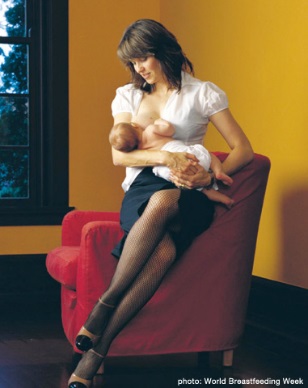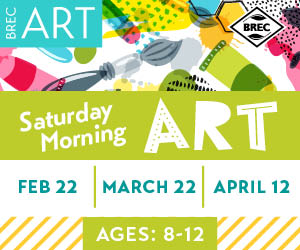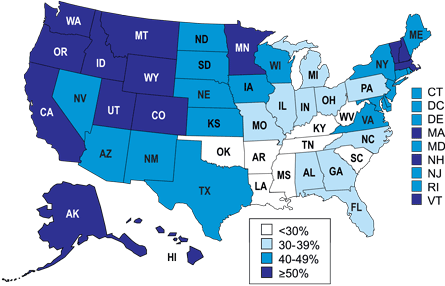Disclaimer: This is a guest post from Dr. Leanne Redman, associate professor of women’s health studies at Pennington Biomedical Research Center. You can get to know her more here and read her first post here. Her facts and opinions are based on her personal research. Red Stick Moms Blog was not paid to promote any specific medical viewpoints or studies. Always consult your physician with any medical questions.
As we heard from Lisa earlier this month on the blog, August is National Breastfeeding Month. And as can be seen by the several blog posts on Red Stick Moms Blog recently, breastfeeding is one of the hottest topics on social media right now. Most of the stories making the news in the past year have been related to new legislation in the Affordable Care Act that describes the rights of women to breastfeed in the workplace, as well as IRS reimbursements for breastfeeding related supplies. Unfortunately not all stories related to breastfeeding that hit the news are as rosy.


As part of the National Breastfeeding Month, moms are being asked to join a national social media campaign and use the hashtag #NBM14 to promote breastfeeding and breastfeeding awareness in our social groups and communities. In conjunction with National Breastfeeding Month, I wanted to share my thoughts and knowledge on mama’s milk and why it is so important and so good for our children.
I will start by saying this. Breastfeeding is a very sensitive subject for mothers. There is increasing social pressure to breastfeed which on one hand I believe is important, but on the other hand we must have deep understanding for those moms who are not doing so. The reason not to breastfeed is rarely a simple one and it often reflects a range of issues – such as the lack of support in the workplace, and that many moms (especially those with hourly employment) return to work only two weeks after the birth of their infant. Other moms experience pain, low supply, or their infant may be in the NICU or have health issues that prevent success with breastfeeding. No matter the success or obstacle, all new moms are united in the experiences of child birth and breastfeeding. It is our sisters, mothers, grandmothers, aunts, and girlfriends who can rally in support of these choices and help us through the tough times and to achieve our goals for breastfeeding.
So what’s with all the hype? I find myself amused that breastfeeding is attracting so much attention recently- feeding an infant milk from the breast is not new! My take is that much of the attention is directed at the U.S. National Statistics for breastfeeding infants.
What’s recommended? The World Health Organization and the American Academy of Pediatricians (AAP) recommends exclusive breastfeeding for roughly the first six months of a baby’s life, and then gradually introducing solid foods to the diet while continuing to breastfeed until the baby’s first birthday.
How are we measuring up? Data collected by the CDC in 2011 showed that only 10.3% of infants are receiving breastmilk exclusively at three months of age. This percentage drops to only 6.8% of infants at six months of age. What is encouraging however, is that these statistics also show that 66% of infants were breastfed at least once and almost half of all babies received breastmilk up until six weeks of age.
Where do we go from here? The Healthy People 2020 agenda for improving the health of Americans hopes that by the year 2020 the number of exclusively breastfed infants at three months increases 3.5 times to 46%, and that the number of exclusively breastfed infants at six months of age increases almost five times to 25% of all babies. We have a long way to go. I believe the increased awareness of consumers’ concerns for quality and quantity of processed foods in our society today is seeing some attention turn toward more natural foods and infant nutrition. It doesn’t get any more natural than breastmilk!
How do the experts arrive at their recommendations? The WHO and AAP recommendations are supported by the remarkable health outcomes seen in infants who are exclusively breastfed in comparison to those only partially breastfed, or never breastfed at all. The strongest health benefit of breastmilk for infants is the protective effects against illnesses which affect the lungs or respiratory system, stomach or gastrointestinal system, allergies and other health issues such as asthma, eczema and atopic dermatisis. When you choose to breastfeed you are making a lifelong investment in your baby’s future. There are several breastfeeding benefits for mom as well: the promotion of healthy reproductive tissues such as uterus and breast; breastfeeding aids in bone strength; and since breastfeeding requires more energy than pregnancy, it is nature’s calorie burner – it helps to burn the body fat stored in pregnancy and helps the mom achieve a healthy post-pregnancy body size. We should also mention breastfeeding can be a huge cost saver for many families.
So why aren’t we measuring up? The reality is breastfeeding is not as easy as it sounds. As if being a new mom doesn’t have enough challenges as we learn the workings of a newborn, we only complicate the situation by breastfeeding. We need to congratulate moms – the statistics are encouraging for the number of babies ever breastfed. So to become successful at breastfeeding, it appears that we need to more openly discuss the challenges and share ways to overcome them.


- Getting your baby to latch on
- Pain, nipple redness and nipple soreness
- Suspected low milk supply or even oversupply
- Knowing if your sleepless baby is getting enough milk
- Nipple infections caused by yeast or thrush
- Managing your anxiety and trying to gain confidence
- Remaining calm when breastfeeding, whether your baby is having difficulty latching on, is a fussy baby, or you are dealing with personal stressors
- Repeated questions from loved ones asking if you are ‘doing it right?’
- Acceptance from family members on the ability to nurse in public places
I know personally of many moms in Baton Rouge and our surrounding areas who would like to take the opportunity to applaud women who are making it through another remarkable day of breastfeeding. No two days are the same and thankfully we now can connect with one another through social media. I am urging all moms considering whether or not to breastfeed, or those currently breastfeeding who would like to lend their advice and support, to consider joining the Baton Rouge Breastfeeding Support Group. Together we can make a difference in the lives of our children.





















Thank you for this factual article. You managed to take a rational tone to an emotional topic; however, I’m disappointed you misrepresented the WHO and AAP recommendations, neither of which state that breastfeeding should take place “until the baby’s first birthday.” Both organizations recomend continuation for as long as mutually desired by both mother and baby.